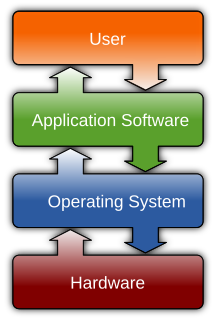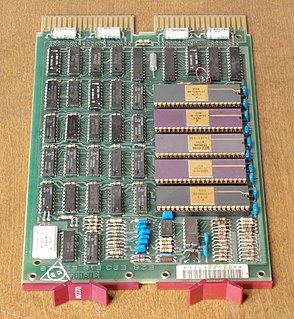
Computer engineering is a branch of engineering that integrates several fields of computer science and electronic engineering required to develop computer hardware and software. Computer engineers usually have training in electronic engineering, software design, and hardware-software integration instead of only software engineering or electronic engineering. Computer engineers are involved in many hardware and software aspects of computing, from the design of individual microcontrollers, microprocessors, personal computers, and supercomputers, to circuit design. This field of engineering not only focuses on how computer systems themselves work but also how they integrate into the larger picture.

The Helsinki University of Technology was a technical university in Finland. It was located in Otaniemi, Espoo in the metropolitan area of Greater Helsinki. The university was founded in 1849 by Grand Duke Nicholas I and received university status in 1908. It moved from Helsinki to Otaniemi campus area in 1966. It was merged into Aalto University in 2010 and briefly had the name Aalto University School of Science and Technology before being split into four schools in 2011.
Computer science and engineering (CSE) is an academic program at some universities that integrates the fields of computer engineering and computer science. It is a sub-field of electronic engineering, covering only the digital aspects of electronics engineering, specializing in hardware-systems areas like computer architecture, processor design, high-performance computing, parallel processing, computer networks and embedded systems. CSE programs also include core subjects of computer science such as operating systems, theory of computation, design and analysis of algorithms, data structures and database systems. The program aims at designing, developing and troubleshooting computing devices, focusing the underlying fundamental issues in the most efficient and effective way.

The J. B. Speed School of Engineering was founded in 1925 as part of the University of Louisville in the U.S. state of Kentucky with money from the James Breckenridge Speed Foundation which was created by his children William S. Speed and Olive Speed Sackett to honor J. B. Speed. Until 2003, it was known as the J. B. Speed Scientific School.
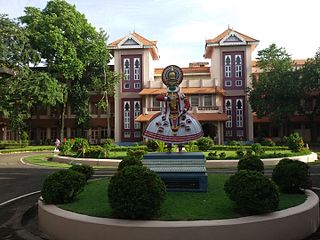
Cochin University of Science and Technology (CUSAT) is a government-owned autonomous science and technology university in Kochi, Kerala, India. Founded in 1971, it has three campuses: two in Kochi and one in Kuttanad, Alappuzha, 66 km inland. The university awards degrees in engineering and science subjects at the undergraduate, postgraduate and doctoral levels.

Carnegie Mellon Silicon Valley is a branch campus of Carnegie Mellon University located in the heart of Silicon Valley in Mountain View, California. It was established in 2002 at the NASA Ames Research Center in Moffett Field. The campus offers full-time and part-time professional Masters programs in Electrical And Computer Engineering, Software Engineering and Software Management, various bi-coastal Masters programs in Information Technology, and a bi-coastal Ph.D. program in Electrical and Computer Engineering. One key differentiator between programs in the traditional Pittsburgh campus and the new Silicon Valley campus is a new focus on project-centered learning by doing approach to education.
A Bachelor of Information Technology is an undergraduate academic degree that generally requires three to five years of study. While the degree has a major focus on computers and technology, it differs from a Computer Science degree in that students are also expected to study management and information science, and there are reduced requirements for mathematics. A degree in computer science can be expected to concentrate on the scientific aspects of computing, while a degree in information technology can be expected to concentrate on the business and communication applications of computing. There is more emphasis on these two areas in the e-commerce, e-business and business information technology undergraduate courses. Specific names for the degrees vary across countries, and even universities within countries.
The School of Engineering and Applied Science (SEAS) at the George Washington University in Washington, D.C. is a technical school which specializes in engineering, technology, communications, and transportation. The school is located on the main campus of the George Washington University and offers both undergraduate and graduate programs.
The Bobby B. Lyle School of Engineering is the school of engineering at Southern Methodist University in Dallas, Texas. The engineering program has existed at SMU since 1925. Many of the college's degree programs are accredited by ABET. The school is divided into five departments, or areas of study - Civil and Environmental Engineering, Computer Science and Engineering, Electrical Engineering, Engineering Management, Information, and Systems, and Mechanical Engineering.
In October 2008, the school was renamed for alumnus and SMU trustee Bobby B. Lyle.

Central Campus commonly known as Pulchowk Engineering Campus is one of the four constituent campuses of the Tribhuvan University, Institute of Engineering in Nepal and is one of the best engineering colleges in Asia. This is central campus of Institute of Engineering(IOE) in Lalitpur city. This campus offers Bachelor’s course, Master’s courses and Doctoral programmes.

The School of Computer Science (SOCS) is an academic department in the Faculty of Science at McGill University in Montreal, Quebec, Canada. The school is the second most funded computer science department in Canada. It currently has 34 faculty members, 60 Ph.D. students and 100 Master's students.
Netaji Subhash Engineering College or NSEC is a graduate and undergraduate engineering college of eastern India located in Kolkata, West Bengal, India. Established in 1998, it is situated at Techno City, Panchpota, Garia in the southern part of Kolkata. The institute is noted for its strong academic foundations and ranks as one of the top engineering colleges in the state of West Bengal.
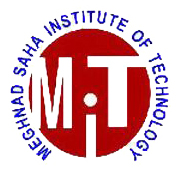
Meghnad Saha Institute of Technology (MSIT), is an engineering and management college located in Kolkata, India.
The college is located in eastern suburb of the city at Nazirabad, Chowbaga behind Ruby General Hospital. The college is approved by the AICTE and the Directorate of Technical Education, and affiliated with West Bengal University of Technology. It offers bachelor's degrees in six streams - Computer Science & Engineering, Information Technology, Electronics & Communication Engineering, Electrical Engineering, Civil Engineering and Mechanical Engineering.
The Kansas State University College of Engineering offers over 12 undergraduate majors and one undecided program, as well as multiple minors, and graduate programs of study. The undergraduate engineering program is ranked 75th best in the United States.

The Volgenau School of Engineering is located in the Fairfax campus of George Mason University in the Commonwealth of Virginia. The Volgenau School offers programs at the B.S., M.S., and Ph.D. levels.
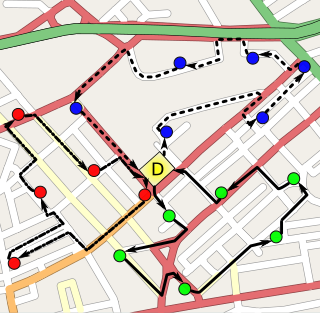
Applied mathematics is the application of mathematical methods by different fields such as science, engineering, business, computer science, and industry. Thus, applied mathematics is a combination of mathematical science and specialized knowledge. The term "applied mathematics" also describes the professional specialty in which mathematicians work on practical problems by formulating and studying mathematical models. In the past, practical applications have motivated the development of mathematical theories, which then became the subject of study in pure mathematics where abstract concepts are studied for their own sake. The activity of applied mathematics is thus intimately connected with research in pure mathematics.
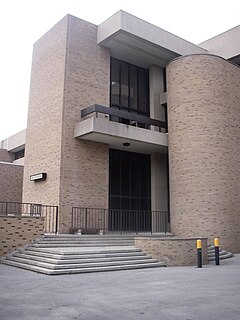
The Faculty of Engineering is one of six faculties at the University of Waterloo in Waterloo, Ontario, Canada. As of 2016, it has 7,630 undergraduate students, 1,872 graduate students, and 309 faculty. It had 42,924 alumni in 2016, making it one of Canada's largest engineering faculties. The Faculty of Engineering houses 8 academic units and offers degrees in a variety of disciplines.

Electronic engineering is an electrical engineering discipline which utilizes nonlinear and active electrical components to design electronic circuits, devices, VLSI devices and their systems. The discipline typically also designs passive electrical components, usually based on printed circuit boards.

The Virginia Tech College of Engineering is the academic unit that manages engineering research and education at Virginia Tech. The College can trace its origins to 1872, and was formally established in 1903. Today, The College of Engineering has 14 departments of study. Its undergraduate program was ranked 14th and its graduate program was ranked 30th among doctoral-granting universities by U.S. News & World Report in 2018. In 2014-15, the College of Engineering consisted of 10,059 students. The current dean is Dr. Julia Ross.



